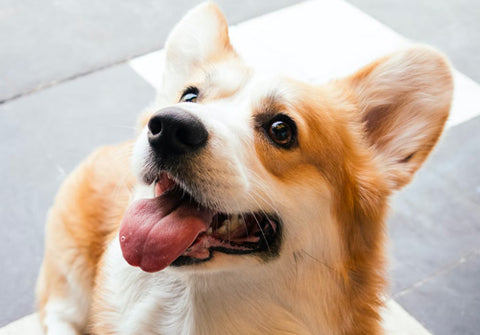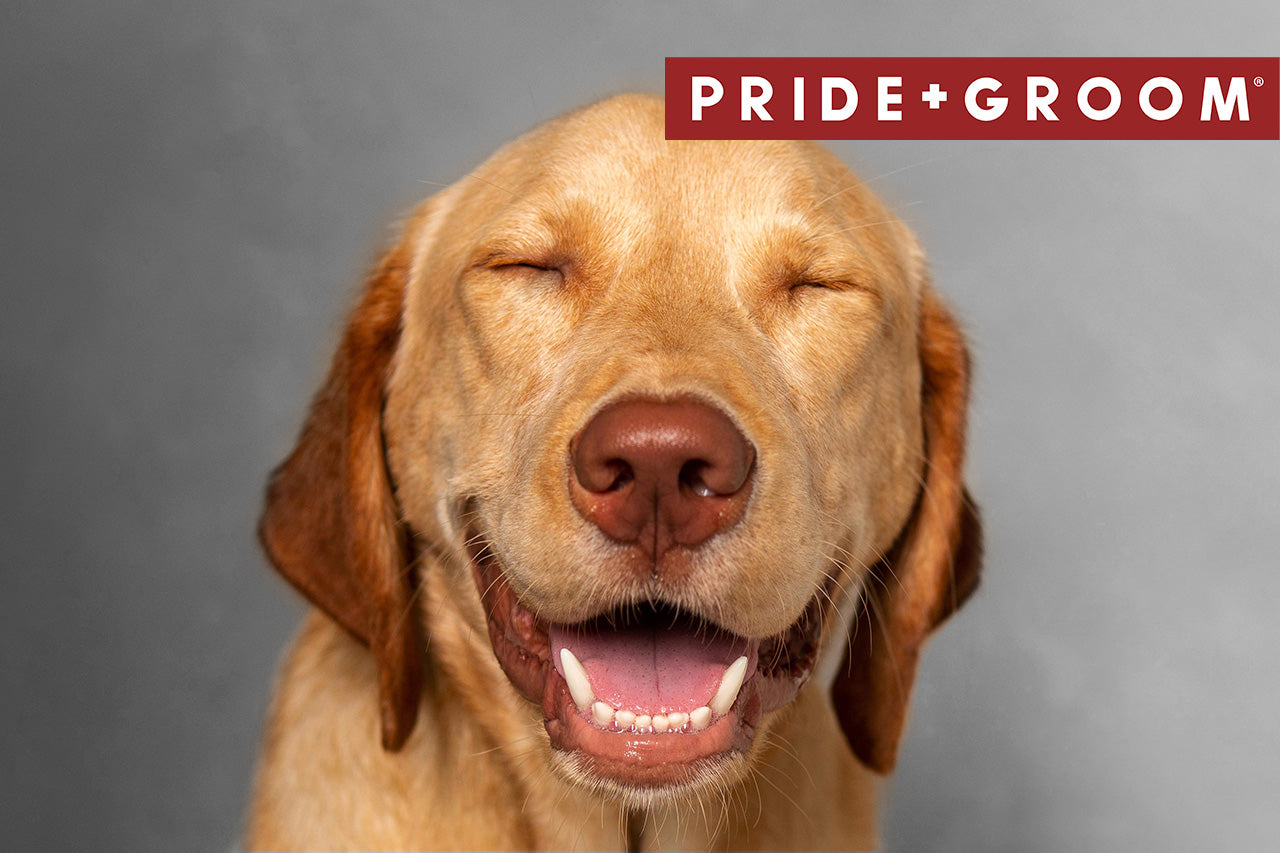A dog with a runny nose can be a sign of a variety of things and can sometimes be harmless as most healthy dogs tend to have a runny nose from time to time. This is similar to humans who are prone to sneezing and sniffling induced by the season and environment and will disappear with time.
However, it should be duly noted that a dog's runny nose can also be a sign of severe and chronic diseases, such as Cancer, that need immediate attention and treatment. Identifying the cause of a dog's runny nose is important in maintaining your pup’s health.
The following is a list of a variety of reasons why your dog is having a runny nose:

Allergies
Allergies are the most common reason why your dog's nose is probably running. Like humans, dogs have diverse allergies and they react negatively to exposure to such allergies.
Your dog’s allergies can range from pollen, plants, a specific food, fleas, human dander (shedding skin), and many other environmental allergens. The probable allergies of a dog are almost infinitely diverse which is why it is quite difficult to discover your dog's allergy.
The symptoms of a dog's allergy don't stop at a runny nose, it may include sneezing, coughing, itching, etc.
It’s important to talk to your Vet about conducting allergy testing on your dog to find out the allergy. Once the allergy is identified you can simply remove or limit your pup’s exposure to it. In cases where the allergy is a type of food, your Veterinarian can help come up with a meal plan that will exclude the dog's allergy and still provide proper nutrition.
A blockage in dog's Nostril
Blockage in a dog's nostrils is also a common cause of your dog's runny nose and sneezing. , Dogs' nostrils (dogs generally) are closer to the ground and are, more prone to inhale a variety of hazardous materials that could lead to a blockage of their nasal tract. This is uncomfortable and they will try to force the foreign material out by sneezing which can cause a running nose. The materials a dog can inhale can range from insects to seeds and more hazardous things.
In severe cases, the dog can have blood in the nasal discharge which may be due to the foreign material hurting the dog's nasal tract and can even lead to infections.
If you can see the foreign material in your dog's nostrils, you can remove it with tweezers but if you cannot or you find it uncomfortable, visit your Vet to help remove the foreign material and prescribe antibiotics to prevent further infections on your dog's nasal tract.
Infections
A continuous nasal discharge by your dog can be a sign of an infection. It can be a sign of a fungal, bacterial, or viral infection. These infections can range from mild to severe to chronic, which is why they should be attended to immediately. Other signs your dog's runny nose may be due to infection are coughing, nose bleeds, bad breath, and, in some cases, a green thick mucus discharge. You need to consult a veterinary doctor for further information.
These infections can be treated in different ways: for a bacterial infection, the veterinary doctor may prescribe weeks of antibiotics for the dog while fungal infections will require special antifungal treatments.
The following are a couple of infections that may be responsible for your dog's runny nose:

Canine Infectious Respiratory Disease Complex (CIRDC)
The Canine Infectious Respiratory Diseases Complex also referred to as 'Kennel Cough' is often transmitted through direct contact of your dog with other pets, for example, in pets in day care. This form of infection particularly can be caused by different pathogens including viruses and bacteria. The treatment of the infection depends on its intensity. However, antibiotics may be prescribed by the vet.
Nasal Parasites
This includes mites and other organisms that inhabit the nasal passages and sinuses of dogs often causing infections and inducing running noses in dogs. These organisms, in some cases, can cause blockage of the dog's nasal tract often causing difficulty in breathing.
These parasites can affect all breeds of dogs regardless of age, size, environment, etc. Other symptoms of parasitic infection in a dog include difficulty breathing, bad breath, nosebleeds, itching, coughing, and sneezing. Once the vet doctor has confirmed the nasal parasitic diagnosis, antiparasitic medications will be prescribed.

Aspergillus of the Nasal Tract
Aspergillus is a fungal infection that affects all animals. It can sometimes affect the nasal tract of your dog, often causing pain around the nose, difficulty breathing, nosebleeds, bad odor, and runny nose. Once the vet doctor diagnoses the infection to be nasal aspergillus through CT scans and X-rays, antifungal medications shall be prescribed for the dog.
Nasal Tumor or Cancer or Polyps
Nasal cancer is referred to as nasal adenocarcinoma. The cause of your dog's running nose may be due to cancer. That sounds alarming but there is no cause for alarm as only about 1% of cancer in dogs is nasal. Therefore, it is quite unlikely that the cause of your dog's runny nose is due to cancer. However, with that in mind, necessary tests should be conducted to rule out cancer as the cause of your dog's runny nose.
Nasal cancer when caught early can be treated using chemotherapy or surgically. Sadly, the prognosis of nasal cancer is generally poor. Other symptoms of nasal cancer are noisy breathing, a bulge on one side of the nose, and facial deformities.
If the tumor is benign, the tumor can be removed surgically and the dog will be fine.
Polyps which are the overgrowing of the mucus-producing gland in the nasal tract of the dog can be removed surgically but, since polyps often reappear, further treatments will be required.
Distemper
Distemper is a viral disease that is caused by the Canine Distemper Virus generally called CDV. This virus affects diverse classes of canines from dogs to foxes to raccoons to wolves etc. Distemper in dogs is often characterized by a sticky yellow discharge from the dog's nostrils.
The symptoms of distemper in dogs are often indistinguishable from that of the Canine Infectious Respiratory Disease Complex (CIRDC). Commonly observed signs of distemper are a runny nose, vomiting and diarrhea, dehydration, excessive salivation, loss of appetite, coughing and/or labored breathing, and weight loss.
There is no specific treatment for distemper and prescribed treatments are based on the conditions and severity. However, a distemper can be prevented by getting your dog vaccinated every three months.
Cleft palate
Cleft palate is the underdevelopment of the tissue joining the mouth to the nostrils. This can cause a runny nose in a dog. The treatment for this is generally through surgery to correct the abnormality.
Nostril Problem
Some dogs generally have special nostril problems including flat-faced breed dogs. This makes them more prone to runny noses than others. This can also result in noisy breathing or worse cases difficulty breathing. In severe cases, surgery may be required.
Temperature Regulation
Some dogs find it difficult to regulate temperature often determined by the extent of their fur. Some dogs may find it difficult to stay cool in the heat. To control this, move your dog to a cool area and make sure the dog stays hydrated and the symptoms will dissipate with time.
How to Diagnose the cause of your Dog's Runny Nose

Diagnosing the cause of your dog's runny nose may be quite difficult considering there are a lot of possibilities for the cause of the runny nose. This is why you should contact a veterinarian to help you find the cause of the runny nose. It is never wrong for you to ask your vet to take a look at your dog even if the symptom is mild.
Some people are familiar with the allergies of their dogs. If this is your case, check if your dog has not been exposed to his/her allergy lately and remove the allergy immediately. If you do not know the allergy of your dog, you can ask your vet to help you find out. (It should be noted that not all dogs have allergies and the cause of your dog's runny nose may be due to other reasons).
Treatment of your Dog's Runny Nose
For your dog to be treated, the cause of the runny nose must have been diagnosed. Once the cause has been discovered (probably by your vet), the medications should be used as prescribed until the symptoms are relieved.
WHO IS PRIDE+GROOM?
PRIDE+GROOM was born because 4 New York City dog lovers wanted the same level of grooming products for their dogs that they themselves enjoyed. They looked (hard) but nothing was up to snuff. Or sniff. Like so many, we love our families and take pride in our homes, and we consider our pets to be integral parts of those entities. That said, we could not find an effective way to coif them that was on par with the way we tended to our children, our homes, or ourselves. These beloved pets are allowed on the furniture and in our beds, and yet even when fresh from the groomer, we knew they did not smell or feel as good as they could.
With the development of our coat-specific shampoos, conditioner and deodorizing spray, we think we found just the way to say thanks for being the best and the sweetest MVP of the house.
PRIDE+GROOM is the first dog grooming brand launched under a beauty platform, with formulas made in a clean beauty and scent lab. We know beauty is not only skin deep. We did a ton of research to create the entire line. Each product is formulated with its own unique blend of essential oils sourced from around the world.
IN DOG WE TRUST
Shop our entire line: www.prideandgroom.com


